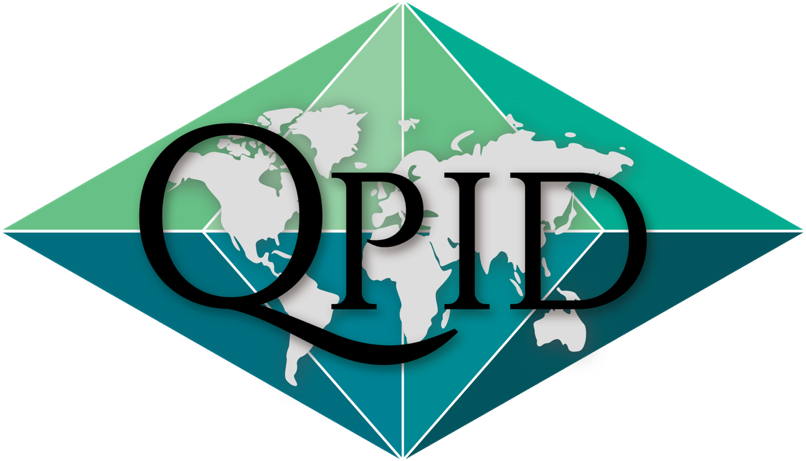Trump Trauma: QPID Coping with a Trump Presidency
The election of Donald Trump as president of the United States has been at the front of the planet’s collective mind since it was officially announced. Opinions on the matter range from elation to severe disappointment with a significant number of people absolutely petrified by the idea of a Trump presidency. Attitudes towards the man himself vary drastically but one commonality amongst seemingly everyone is a feeling of uncertainty about what is actually going to happen over the next four years. Invariably this new president will bring with him a very different set of foreign policy objectives to his Democratic predecessor and said policy shift will undoubtedly have an effect on the world of international development. As an international development organization, QPID has a direct stake in this game and, as such, the forum immediately following the election was dedicated to examining exactly what the aforementioned policy entailed and its potential consequences.
Donald Trump is not a classical politician and in the context of his campaign direct statements of policy positions were both rare and vague. Rather than being explicitly stated as part of a platform on his website – as is common amongst in today’s political world – what one would call Trump’s “foreign policy” is comprised of a series of quotes from debates, interviews, and speeches he has given throughout his campaign. As such, to provide a basis for conversation, the Forum and Community Outreach team compiled a collection of the aforementioned quotes into a package to be distributed at the week’s forum. This package was Trump’s “foreign policy platform” and the topic of conversation for the forum.
Forum itself began by dividing the room into four groups and giving each of these groups a “platform package”. Within the groups members had to decide on a specific foreign policy issue (or set of issues). The groups were then asked to discuss the impacts of this foreign policy stance. This included determining what each group thought this would mean in a global context both in terms of positives and negative. The room being generally quite pessimistic about the situation altogether, the major obstacle for each group was to try and find a potential positive aspect of the policy.
After a lengthy discussion period within the smaller groups the room convened as a whole to share the conclusions of their conversations. There was undoubtedly much more pessimism than optimism in each of the groups but there were some cases of positive outcomes that are worth pointing out. One group noted that Putin’s amicable stance towards Trump could provide a strong base for negotiating with Russia with respect to global crises. For example, the current U.S. administration is at loggerheads with Russia on the topic of the Syrian Civil War and a Trump presidency could lead to a more open dialogue as compared to the current one between Obama and Putin. Another group was surprised and delighted to learn that Mr. Trump hoped to continue the diplomatic relations with Cuba that president Obama had rekindled after easing the more tan half-century long embargo. This represented a much more progressive stance than was expected of a Republican politician as the party is usually associated with having the stance of maintaining a distance from Cuba.
Other groups struggled to find positives with respect to the potential impact on a Trump presidency on the Middle East, relations with China, and international environmental accords (namely the fact that he will likely undo the work done at the Paris conference of 2015). A wave of pessimism and despair seemed to take over the room as people began raising more concerns about just how detrimental this could all be to the world as a whole. The conversation almost inevitably devolved into one of pity for the U.S. with many fearing that much of the progressive work done over the past two decades with respect to environmental and social advancement would be undone. The prospect of a Republican House and Senate and the very likely possibility of a strong majority of right-wing Supreme Court justices by the end of Trump’s tenure place such advancements as accessible healthcare, reproductive rights, and marriage equality in serious jeopardy.
Consensus at the end of forum leaned heavily towards Trump’s presidency being a step backwards for the U.S. and the world as a whole. It is worth noting, however sad it may be, that we – as Canadians –have virtually no say in this matter. It is not our country and we do not have the right or the ability to impact American politics. We can, as Canadians, work to ensure that the progressive change we fear will cease in America under Donald Trump continues in our country. We can work with organizations like QPID to help counteract any negative impact we think the new administration to our south may have on the word. Canadians with opposing ideologies to Trump’s can also take solace in the fact that we have elected one of the most progressive governments in recent decades. The results of the American election may have left many with an awful feeling in the pit of their stomach, but it is important to realize that life must go on, and that if you are one of those who has been left feeling sick you do have a part to play in making sure that Canada does not follow the U.S. on the new path it has chosen.
Moral of the story guys – let’s all be happy we’re Canadian.



